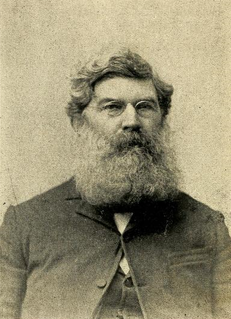A Quote by Will Schwalbe
In Gilead, the narrator's friend's son describes himself not as an atheist but in "state of categorical unbelief." He says, "I don't even believe God doesn't exist, if you see what I mean." I pointed this passage out to Mom and said it closely matched my own views-I just didn't think about religion.
Related Quotes
Faith in ourselves will do everything. I have experienced it in my own life, and am still doing so; and as I grow older that faith is becoming stronger and stronger. He is an atheist who does not believe in himself. The old religions said that he was an atheist who did not believe in God. The new religion says that he is the atheist who does not believe in himself
Yes, I think I use the term radical rather loosely, just for emphasis. If you describe yourself as atheist some people will say, Don't you mean agnostic? I have to reply that I really do mean atheist, I really do not believe that there is a god; in fact, I am convinced that there is not a god (a subtle difference). I see not a shred of evidence to suggest that there is one...etc., etc. It's easier to say that I am a radical atheist, just to signal that I really mean it, have thought about it a great deal and that it's an opinion I hold seriously.
The Vedanta teaches men to have faith in themselves first. As certain religions of the world say that a man who does not believe in a Personal God outside of himself is an atheist, so the Vedanta says, a man who does not believe in himself is an atheist. Not believing in the glory of our own soul is what the Vedanta calls atheism.
On the Cross the Jesus of the Four Gospels, who was God, cried out My God, my God, why hast thou forsaken me? God cannot forsake himself, Jesus was God himself. Yet God forsook Jesus, and the latter cried out to know why he was forsaken. Any able divine will explain that of course he knew, and that he was not forsaken. The explanation renders it difficult to believe the dying cry, and the passage becomes one of the mysteries of the holy Christian religion, which, unless a man rightly believe, without doubt he shall perish everlastingly.
God is God. I dethrone Him in my heart if I demand that He act in ways that satisfy my idea of justice. It is the same spirit that taunted, "If Thou be the Son of God, come down from the Cross." There is unbelief, there is even rebellion, in the attitude that says, "God has no right to do this to five men unless...
It has been jestingly said that the works of John Paul Richter are almost unintelligible to any but the Germans, and even to some of them. A worthy German, just before Richter's death, edited a complete edition of his works, in which one particular passage fairly puzzled him. Determined to have it explained at the source, he went to John Paul himself. The author's reply was very characteristic: "My good friend, when I wrote that passage, God and I knew what it meant; it is possible that God knows it still; but as for me, I have totally forgotten."
The courts demand that every religious person must accommodate a single atheist who might be 'offended' at the favorable mention of God's name. But no atheist can be forced to accommodate a single religious person who might be offended by the atheist's unbelief, or who wants to be part of the pluralism and diversity about which liberals regularly speak, but which is not broad enough to embrace people who believe in God.
I am an atheist. There, I said it. Are you happy, all you atheists out there who have remonstrated with me for adopting the agnostic moniker? If "atheist" means someone who does not believe in God, then an atheist is what I am. But I detest all such labels. Call me what you like - humanist, secular humanist, agnostic, nonbeliever, nontheist, freethinker, heretic, or even bright. I prefer skeptic.
When someone tells you, 'I love you,' and then you feel, 'Oh, I must be worthy after all,' that's an illusion. That's not true. Or someone says, 'I hate you,' and you think, 'Oh, God, I knew it; I'm not very worthy,' that's not true either. Neither one of these thoughts hold any intrinsic reality. They are an overlay. When someone says, 'I love you,' he is telling you about himself, not you. When someone says, 'I hate you,' she is telling you about herself, not you. World views are self views-literally.
I am making an effort to truly live. I don't mean to imply by that that I haven't been alive before but, with my son being here and such a powerful force in my life, he's given me a freedom to be more. I think that sometimes we can get stuck, and just the fact that he's here says so much to me about my own existence. I didn't think I'd be able to have children, and this level of blessing is something I can't even put my finger on.
This religion teaches that 6,000 years ago God made the first man out of dust - not even mud - and the first woman out of a bone; that God cursed the whole human race because a snake made the woman eat an apple; that God had a son by another man's wife, and that he had this son murdered in order to keep himself from sending all the human race to hell.

































